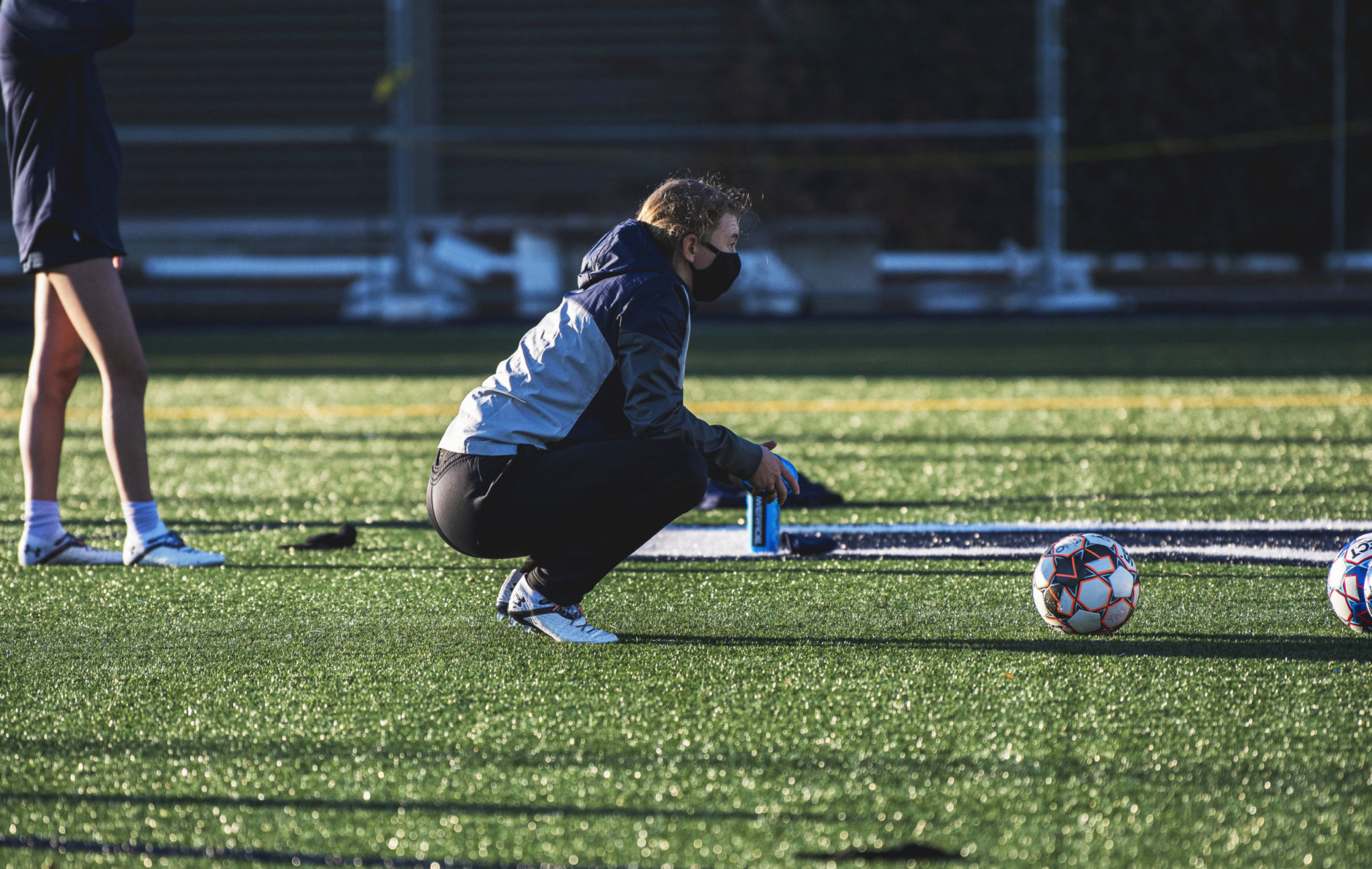Possibility of practicing at Yale complicates learning location decision for first-year spring athletes
Yale will allow first-year spring athletes who are enrolled remotely to train in necessary athletic facilities this spring. But uncertainty around spring competition is complicating decisions around learning location.

Courtesy of Yale Athletics
As students on campus near the end of arrival quarantines in their residential colleges, Yale first-year athletes have begun to look toward an uncertain spring semester and the potential season of sports ahead. Many spring athletes who have chosen to stay enrolled in remote classes as first years told the News that they have still not yet decided whether or not they will return to New Haven, while others have simply chosen to remain home in the hope of training for seasons to come in the next academic year.
According to a list of frequently asked questions sent to spring student-athletes, Yale Athletics “will provide access to necessary athletic facilities” for remotely enrolled first-year spring athletes, as long as they comply with the residential community compact and agree to twice-a-week COVID-19 testing. First-year athletes will not have access to any other part of campus, the FAQ added.
While the department is currently in Phase 0, with only virtual team and individual meetings permitted, Associate Athletic Director for Strategic Communications Mike Gambardella told the News that future phasing movements will apply to remotely enrolled first years hoping to participate as well.
“Practice phases apply to enrolled in-residence student-athletes and remotely enrolled first years,” Gambardella wrote in an email. “Phase advancement is determined in conjunction with Yale Health and the Yale Public Health Advisory Committee.”
The majority of first years, except for those with special permission to live on campus, are living away from New Haven this semester due to Yale College guidelines, meaning that a number of athletes are currently living at home or are unenrolled to preserve another semester of eligibility for future play.
Despite the possibility of participating in official practices as a remotely enrolled student, first-year spring athletes like Yale track and field thrower Bella Bergloff ’24 have had to make tough decisions on how to approach the semester.
“Training at home had been a little difficult without all of the resources available on campus,” Bergloff said. “Without access to an indoor track and with the bad weather, I haven’t been able to do any practicing outside and get much throwing in.”
However, due to the possibility of an upcoming spring season, many Bulldogs are using this time at home to train and prepare on a more consistent basis. Chris Ward ’24, another thrower for Yale track and field, has taken this opportunity to remain in his hometown of Cincinnati, Ohio.
“I’m going to be remote this semester and I plan on working out and practicing at home,” Ward said. “I feel like the availability of facilities are more guaranteed.”
After a turbulent fall in which many athletes saw their practice and workout schedules fluctuate due to a series of three COVID-19 outbreaks on campus and the subsequent shifts in phasing they caused, many first years said they are grateful for the chance to train normally despite the fact they may be away from the facilities they would normally enjoy on campus.
Although many have made the ultimate decision to remain and train at home, others said they are still debating a return to New Haven to practice, depending on the department’s phasing restrictions and any guidance they receive from coaches. A Yale Athletics FAQ sent to spring athletes on Jan. 25, however, technically specifies that “remotely enrolled first-year student-athletes that wish to participate with their team during the spring semester must arrive in New Haven by Feb. 1st to complete the two-week quarantine period and take part in twice a week testing.”
Earlier this academic year, 23 first-year athletes interviewed by the News about their enrollment plans expressed a range of responses. While nearly 14 athletes had decided to enroll remotely — one of whom was enrolling from the New Haven area — seven hoped to stay in New Haven with housing exceptions.
For some, plans have changed. In November, men’s lacrosse defender Franz Raab ’24, for example, said he hoped to live in New Haven and enroll if there was spring competition, but he has now officially decided to remain in Beverly Hills, Michigan and take a leave of absence. NCAA rules do not allow any unenrolled student-athlete to engage in any required in-person athletic activities, according to the Jan. 25 FAQ addressed to spring athletes.
Despite the uncertainty, other first-year Bulldogs remain hopeful for the possibility of a spring season. Bergloff told the News that she has faced many challenges and obstacles over the past couple of months being home in Holliston, Massachusetts, due to weather conditions and the great distance between her and her teammates, yet she remains dedicated to her practice in hopes of an eventual return to campus.
“Keeping motivated also has been a struggle with the low chance of having a season and not getting to see the team,” Bergloff said. “But to stay prepared in hopes of a spring season, I’ve been doing high school workouts and the lifts sent by strength coaches.”
Beginning at 7:00 a.m. on Feb. 15, on-campus Yale College students can progress to phase three of the arrival quarantine and leave their residential colleges.
Bennie Anderson | bennie.anderson@yale.edu
Amelia Lower | amelia.lower@yale.edu







